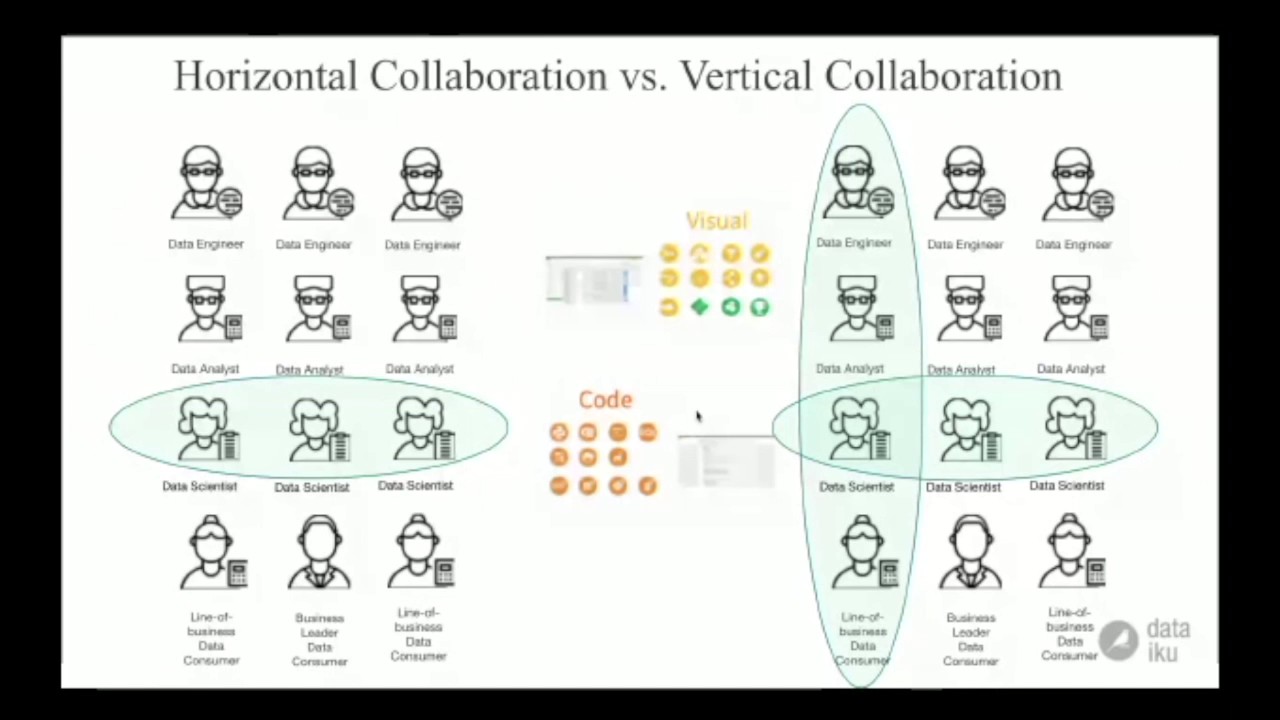When talking about data science, people throw around the word collaboration a lot, but it can mean many different things. So we’ve dubbed this month CollaborApril, and we will be using this opportunity to take a closer look at what collaboration actually means (and what it brings) in practice to today’s data team.
Horizontal vs. Vertical Collaboration
Part of the reason that collaboration is used a lot (but also why there is some lack of specificity around it’s exact definition) is because it actually has two distinct parts:
- Horizontal collaboration refers to people working together with others who have roughly the same skills, toolsets, training, and day-to-day responsibilities. For example, data scientists with other data scientists or analysts with other analysts.
- Vertical collaboration refers to people from across teams working together who might have vastly different responsibilities, viewpoints, and who - importantly - use very different tools, usually.

Of course, most companies have the horizontal collaboration figured out, at least to some extent. When a new hire comes on board, when someone is out on vacation, someone leaves the company - these are all common reasons why most teams have some minimum form of a solution for horizontal collaboration.
But often these solutions are specialized to the profiles of those people. For example, data scientists might use GitHub, which works horizontally because everyone with the same profile, skills, etc., can use it. But where businesses often get stuck when trying to scale up data teams is the vertical aspect. How can different people from all parts of the organization work together in a meaningful way?
Collaboration is the Answer, but Not Always the Question
Collaboration is often the key to a wide range of issues that are slowing or completely blocking enterprises from becoming data-powered. But frequently, though it is part of the solution, businesses don’t realize it. Instead of asking “How can I get my team to work more together?” the question is often more like:
How can I get more out of my data scientists (productivity, output, projects, etc.)?
How can I take the first step toward using artificial intelligence (AI) to advance my business?
How can I create data projects that are more valuable to my company?
How can I scale my data team from the bottom up?





